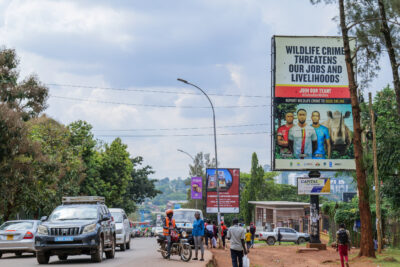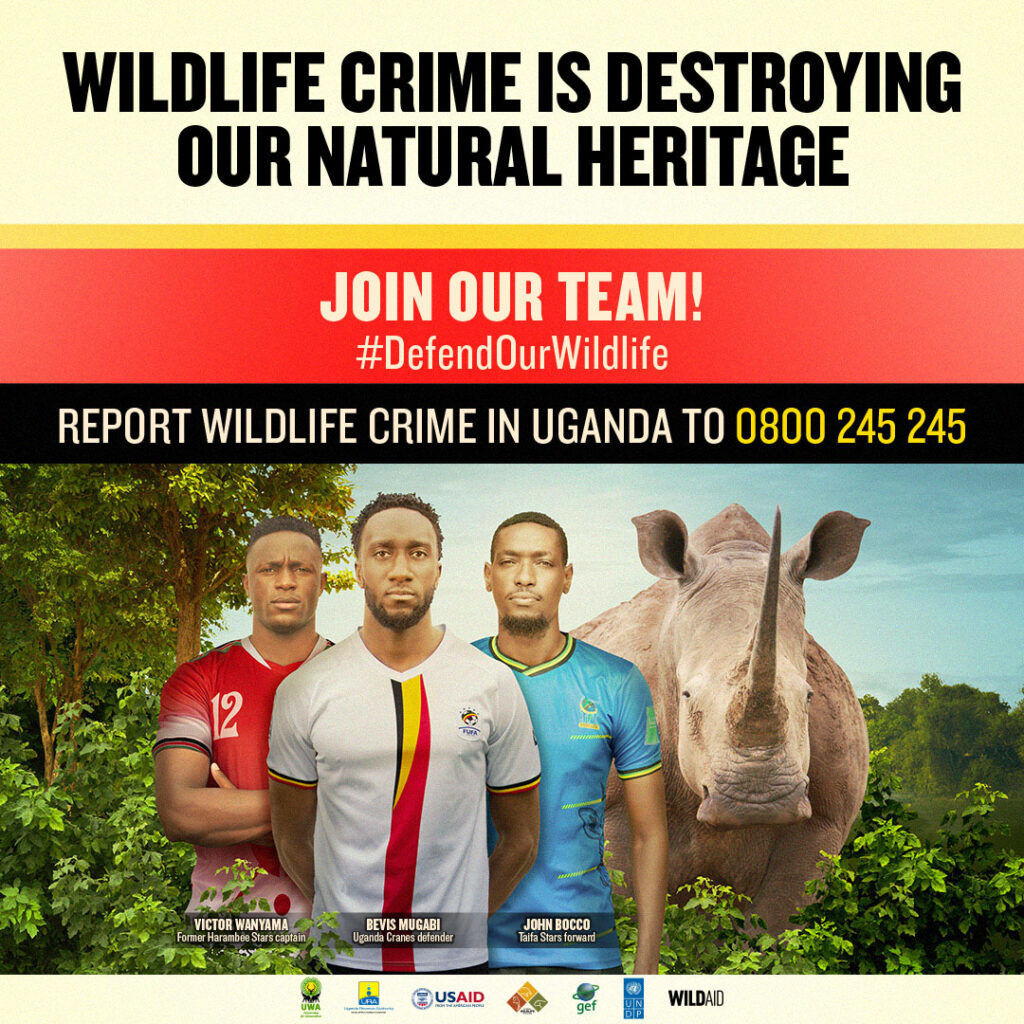
Uganda Wildlife Authority and Uganda Revenue Authority, with support from WildAid, are expanding their landmark campaign to prevent the illegal trade in wildlife products to reach 14 border posts around Uganda.
The “Join Our Team! Defend Our Wildlife” campaign aims to raise awareness of the value of wildlife to Uganda’s economy and help law enforcement and cargo sector workers stamp out the trafficking of illegal wildlife products. The campaign began by targeting shipping and dry ports across East Africa, and it is now shifting its focus to Uganda’s borders.
This new phase begins with workshops at seven of Uganda’s largest border points, with the Democratic Republic of Congo, Kenya, Rwanda, South Sudan, and Tanzania, bringing together customs, police, and private sector cargo shipping companies, among others. During the events, wildlife and revenue authority officials will lead discussions about the importance of wildlife to Uganda’s economy and heritage, how to identify suspicious shipping consignments, and what action to take. Staff of different law enforcement agencies will also be encouraged to coordinate their efforts to clamp down on wildlife trafficking, and are encouraged to report wildlife crime to UWA’s anonymous, toll-free hotline on 0800 245 245.


Uganda has in the past been an African hub for transnational illegal wildlife trafficking, serving as a source, consolidation, and transit point. WildAid’s strategy for Uganda, implemented in close partnership with Uganda Wildlife Authority, aims to make Uganda a regional leader in the fight against wildlife trafficking, by increasing awareness of the negative implications of wildlife trafficking and promoting knowledge on how to combat it. The program also works to raise awareness amongst the general public and the media about the positive benefits of wildlife.
East Africa’s wildlife helps draw more than 5 million tourists a year to Uganda, Kenya, and Tanzania. It provides at least 1.5 million jobs in Kenya, a similar number in Tanzania, and another 600,000 jobs in Uganda, where it contributes about 8% of the GDP.
In what was termed a “game-changing” campaign, the initial phase saw video and radio ads, billboards, posters, flyers, and stickers distributed around the East African cargo shipping ports of Kampala, Dar es Salaam, and Mombasa. An independent study conducted in December 2022 found that:
- 97% of port workers reported increased knowledge and awareness about illegal wildlife trafficking as a result of the campaign.
- 97% of port workers are more likely to report wildlife crime as a result of the campaign.
- 99% of port workers said that the campaign increased their sense of pride in their country’s wildlife.
Stay in touch and get the latest WildAid updates.
SIGN UP